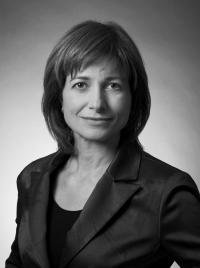
Dr. Rosemary Martino held the inaugural Tier 2 Canada Research Chair in Swallowing Disorders (2013-2023). She is an expert in the area of swallowing disorders (dysphagia) and clinical epidemiology. Her Swallowing Lab research team includes several Research Coordinators, research Speech Language Pathologists, and graduate/post-graduate research students.
The focus of Dr. Martino’s research is dysphagia, more specifically oropharyngeal dysphagia, secondary to neurological, cancer and cardiovascular etiologies. Dr. Martino’s research aims to discover high-level evidence to determine whether swallowing interventions are beneficial in reducing or eliminating unnecessary consequences such as pneumonia, malnutrition, dehydration, anxiety, depression, poor quality life and even death.


 https://orcid.org/0000-0002-3298-7714
https://orcid.org/0000-0002-3298-7714